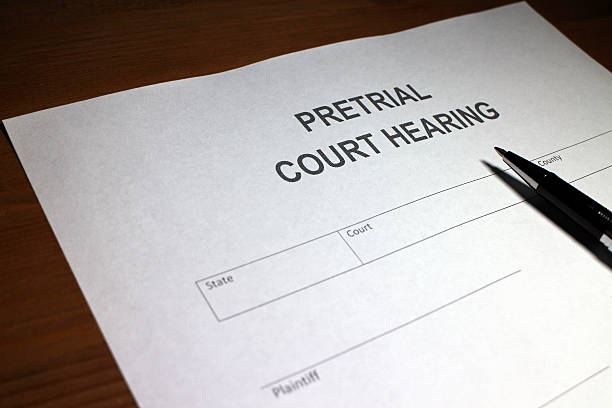What is a Pretrial Conference in a Civil Case in Indiana?
Indiana Civil Litigation Attorney

A pretrial conference in a civil case in Indiana is a court-ordered meeting that takes place before the trial begins. It involves the parties involved in the case—plaintiffs and defendants—as well as their attorneys and the judge overseeing the case. These conferences are typically mandated to streamline the legal process, aid in case preparation, and explore the possibility of reaching a settlement without going to trial.
Purpose of a Pretrial Conference
The primary objectives of a pretrial conference include:
Case Management: Organizing the case to avoid unnecessary delays and ensure all parties comply with procedural requirements.
Trial Preparation: Discussing the sequence of events at trial, exchanging information, and narrowing down the key issues.
Settlement Discussions: Encouraging the parties to consider resolving the case without the need for a full trial, which could save time and resources.
What Happens During a Pretrial Conference?
During a pretrial conference in Indiana, the following activities typically occur:
Exchange of Information:
- Parties share evidence and information related to the case.
- Disclosure of witnesses and exhibits intended to be presented at trial.
Identification of Issues:
- Both legal and factual issues are examined and clarified.
- Parties attempt to agree on certain points to simplify the trial.
Scheduling:
- Deadlines are established for submitting motions, discovery, or other filings.
- The trial date is confirmed or adjusted, if necessary.
Settlement Negotiations:
The judge may encourage or mediate discussions toward an out-of-court settlement.
When Does the Pretrial Conference Take Place?
The timeline for scheduling a pretrial conference in Indiana can vary depending on the complexity of the case and the court's calendar. Typically, a pretrial conference is scheduled a few weeks to a few months before the trial date. The court issues a notice to all the parties specifying the date, time, and location of the conference.
Responsibilities and Expectations of the Parties
As a plaintiff or defendant, you have specific responsibilities during a pretrial conference:
Preparation:
- Review all documents, evidence, and legal filings.
- Be ready to discuss the facts, legal issues, and desired outcomes with your attorney.
Participation:
- Attend the conference as required by the court.
- Work cooperatively with your attorney to narrow down issues and explore settlement options.
Failure to prepare adequately for a pretrial conference or to participate in good faith could have negative consequences for your case.
Role of the Judge in a Pretrial Conference
The judge plays an active role in guiding the pretrial conference:
- Facilitates discussion between the parties.
- Clarifies unresolved legal or factual issues.
- Encourages and sometimes mediates settlement negotiations.
- Sets deadlines and outlines the next steps.
The judge's involvement ensures that the trial process, if necessary, will proceed efficiently and without unnecessary surprises.
Possible Outcomes of a Pretrial Conference
Several key decisions can result from a pretrial conference, including:
- Setting deadlines for legal filings or discovery.
- Narrowing down issues to focus on during the trial.
- Finalizing the trial date and procedural details.
- Reaching a settlement agreement, potentially resolving the case without a trial.
Consequences of Failing to Attend or Comply
Not attending a pretrial conference or failing to comply with court-imposed deadlines can lead to serious consequences, including:
- Delays in your case.
- Financial penalties.
- Dismissal of your case (if you are the plaintiff).
- Default judgment against you (if you are the defendant).
It is critical to take the pretrial conference seriously, as it has a significant impact on the progression of your case.
Importance of the Conference for the Trial
The information exchanged and decisions made during a pretrial conference lay the groundwork for the trial. By identifying key issues and setting expectations, the conference ensures the trial will be more focused and efficient.
How to Check Your Case Status in Indiana
If you wish to check the status of your civil case in Indiana, visit our client portal if you are a client. Also, you can visit mycase.in.gov. This online portal provides public access to case information filed within the Indiana Superior or Circuit courts. Simply enter your case details to retrieve the latest updates.
Final Thoughts
Understanding the pretrial conference process is essential for plaintiffs and defendants involved in civil cases in Indiana. By being well-informed and prepared, you can better manage expectations, streamline the trial process, and even explore opportunities to resolve your case efficiently through settlement.






















